第22章
inhabiting the same country, and united under one and the same government, it is further answered.The nation, then, is not purely personal, but also territorial.
Then, again, the question comes up, who or what determines the territory? The government? But not before it is constituted, and it cannot be constituted till its territorial limits are determined.The tribe doubtless occupies territory, but is not fixed to it, and derives no jurisdiction from it, and therefore is not territorial.But a nation, in the modern or civilized sense, is fixed to the territory, and derives from it its jurisdiction, or sovereignty; and, therefore, till the territory is determined, the nation is not and cannot be determined.
The question is not an idle question.It is one of great practical importance; for, till it is settled, we can neither determine who are the sovereign people, nor who are united under one and the same government.Laws have no extra-territorial force, and the officer who should attempt to enforce the national laws beyond the national territory would be a trespasser.If the limits are undetermined, the government is not territorial, and can claim as within its jurisdiction only those who choose to acknowledge its authority.The importance of the question has been recently brought home to the American people by the secession of eleven or more States from the Union.Were these States a part of the American nation, or were they not? Was the war which followed secession, and which cost so many lives and so much treasure, a civil war or a foreign war? Were the secessionists traitors and rebels to their sovereign, or were they patriots fighting for the liberty and independence of their country and the right of self-government? All on both sides agreed that the nation is sovereign; the dispute was as to the existence of the nation itself, and the extent of its jurisdiction.Doubtless, when a nation has a generally recognized existence as an historical fact, most of the difficulties in determining who are the sovereign people can be got over; but the question here concerns the institution of government, and determining who constitute society and have the right to meet in person, or by their delegates in convention, to institute it.This question, so important, and at times so difficult, the theory of the origin of government in the people collectively, or the nation, does not solve, or furnish any means of solving.
But suppose this difficulty surmounted there is still another, and a very grave one, to overcome.The theory assumes that the people collectively, "in their own native right and might," are sovereign.According to it the people are ultimate, and free to do whatever they please.This sacrifices individual freedom.
The origin of government in a compact entered into by individuals, each with all and all with each, sacrificed the rights of society, and assumed each individual to be in himself an independent sovereignty.If logically carried out, there could be no such crime as treason, there could be no state, and no public authority.This new theory transfers to society the sovereignty which that asserted for the individual, and asserts social despotism, or the absolutism of the state.It asserts with sufficient energy public authority, or the right of the people to govern; but it leaves no space for individual rights, which society must recognize, respect, and protect.This was the grand defect of the ancient Graeco-Roman civilization.The historian explores in vain the records of the old Greek and Roman republics for any recognition of the rights of individuals not held as privileges or concessions from the state.Society recognized no limit to her authority, and the state claimed over individuals all the authority of the patriarch over his household, the chief over his tribe, or the absolute monarch over his subjects.The direct and indirect influence of the body of freemen admitted to a voice in public affairs, in determining the resolutions and action of the state, no doubt tempered in practice to some extent the authority of the state, and prevented acts of gross oppression; but in theory the state was absolute, and the people individually were placed at the mercy of the people collectively, or, rather, the majority of the collective people.